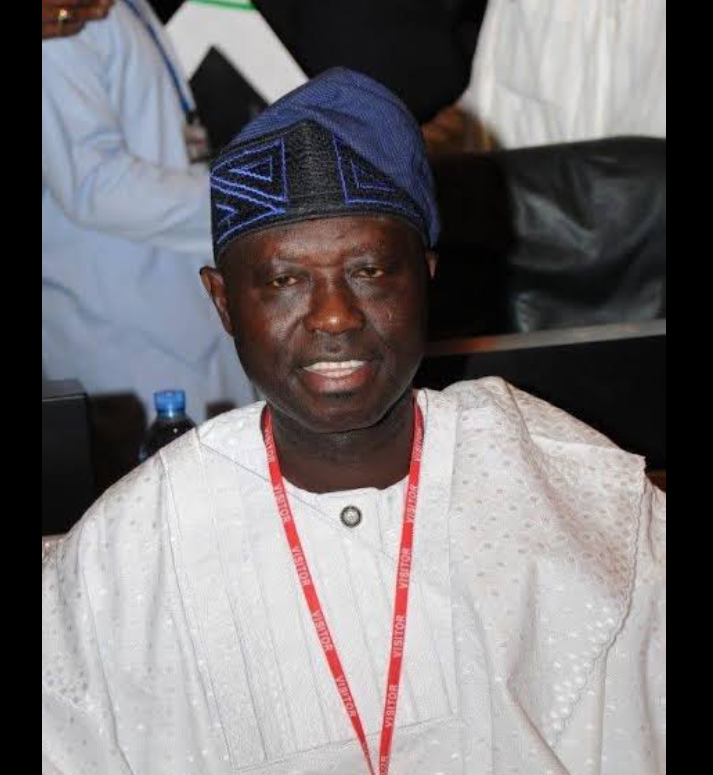

A dramatic scene unfolded in Abuja as soldiers reportedly clashed with the Minister of the Federal Capital Territory, Nyesom Wike, and officials of the Federal Capital Territory Administration (FCTA), preventing them from gaining access to a disputed parcel of land. The confrontation, which quickly turned chaotic, saw uniformed military personnel blocking the minister’s convoy, sparking tension and confusion among onlookers and government aides present at the scene.
According to eyewitnesses, the incident occurred when the FCT Minister, accompanied by a team of senior officials from the FCTA, stormed the area as part of his ongoing city inspection tour aimed at reclaiming illegally occupied lands and restoring the Abuja Master Plan. However, what was supposed to be a routine enforcement exercise turned into a heated standoff when armed soldiers stationed on the property refused to allow the minister and his entourage to access the site.
Eyewitnesses recounted that the soldiers, believed to be attached to a yet-to-be-identified military formation, stood their ground, insisting that the land in question was under the control of the Nigerian Army. Despite explanations from the FCTA officials that the land belonged to the federal government and fell under the FCT’s jurisdiction, the soldiers reportedly refused to step aside, insisting that they were acting under strict orders from their superiors.
Tension escalated as the minister’s security details and the soldiers exchanged harsh words, with both sides refusing to yield. Videos from the scene, now circulating on social media, show a visibly angry Nyesom Wike attempting to speak to the commanding officer on site, demanding to know why the soldiers would obstruct a sitting minister carrying out his duties. In one of the clips, Wike can be heard saying, “You can’t be in my territory and give me orders. This is the Federal Capital Territory, not a military zone.”
The situation reportedly degenerated into a mild physical confrontation when some of the minister’s security operatives tried to move past the soldiers, leading to a brief scuffle. Witnesses said that a few men were pushed and shoved before senior officers on both sides intervened to calm the situation. The minister, visibly furious, eventually withdrew from the scene, promising to address the matter through appropriate channels.
Sources within the FCTA later described the incident as “a serious affront to constituted authority,” arguing that no part of the nation’s capital should be under the control of any unauthorized individual or group, including the military, without due process. One senior official who spoke under anonymity said, “This is not the first time we are having issues like this. The military has occupied several lands in Abuja that are not legally allocated to them. What happened today shows how deep the problem has become.”
The source further disclosed that the disputed land was earmarked for public use and that several letters had been exchanged between the FCTA and the military authorities concerning the matter. “We have followed the process; we have written letters, held meetings, and even received approvals for the site inspection. Yet, when we got there today, soldiers blocked us. It’s unbelievable,” the official added.
As news of the confrontation spread, reactions poured in from various quarters, with many Nigerians expressing shock at what they described as a display of impunity and disrespect for civil authority. Some commentators on social media accused the military of overstepping their boundaries, warning that such acts could undermine civilian control over the capital territory. Others, however, urged caution, calling on both sides to clarify the ownership of the land before drawing conclusions.
Political observers noted that the clash underscores the long-standing tensions between the FCT administration and security agencies over land allocations in Abuja. Over the years, several military formations have been accused of encroaching on government lands and developing properties without proper authorization. The latest incident appears to have reopened old wounds and reignited the debate over who truly controls the use of land in the Federal Capital Territory.
A former FCTA director, reacting to the development, said the confrontation reflects deeper institutional dysfunctions that have been left unresolved for too long. “What happened to Minister Wike is not an isolated case. The FCTA has often found itself powerless when dealing with the military or other security agencies who occupy strategic lands across Abuja. Until the government establishes clear lines of authority and accountability, these conflicts will continue,” he stated.
Attempts to get an official response from the Nigerian Army have so far proven unsuccessful, as calls and messages to the Army Public Relations Directorate went unanswered. However, a senior army officer who did not wish to be named suggested that the soldiers might have acted based on existing directives to secure the area pending a resolution of ownership issues. “We don’t take sides, but sometimes there are standing orders that troops follow. It’s possible the minister’s visit coincided with a misunderstanding of such orders,” the officer explained.
Meanwhile, aides close to Wike say the minister has vowed to escalate the issue to the presidency, describing the soldiers’ action as “a deliberate provocation” and “an insult to civil authority.” One aide said, “The minister will not take this lightly. He has made it clear that no one, not even the military, is above the law. Abuja is the seat of government, and it must reflect law and order.”
The FCTA’s legal department is reportedly preparing an official complaint to the Ministry of Defence, demanding disciplinary action against the soldiers involved and a formal clarification on the ownership status of the disputed land. Some insiders hinted that the FCTA might also seek a court injunction to prevent further military occupation of lands not legally allocated to them.
This latest episode comes at a time when Wike has intensified efforts to reclaim public lands, demolish illegal structures, and restore order to Abuja’s urban planning. Since assuming office as FCT Minister, he has repeatedly clashed with private developers and government institutions accused of violating land regulations. The minister’s strong-handed approach has earned him both praise and criticism, but the recent standoff with soldiers adds a new dimension to his enforcement campaign.
As the dust settles, questions continue to swirl about the boundaries of power between the FCT Administration and the Nigerian military. Analysts warn that if left unaddressed, such confrontations could escalate into broader institutional conflicts that undermine governance in the capital. For now, the nation watches as Minister Wike prepares his next move, determined to assert his authority in a city meant to symbolize unity and order.
In the wake of the confrontation, one thing is clear — the Abuja land wars are far from over. The clash between soldiers and the FCT Minister is not just a momentary outburst; it is a symptom of deeper struggles over control, accountability, and respect for civil authority in Nigeria’s seat of power. As Nigerians await the government’s official response, many hope that reason and rule of law will prevail over the show of force that played out in the heart of the nation’s capital.
Soldiers stop FCT Minister Nyesom Wike, FCTA officials from accessing land. Security details involved in physical confrontation
— Nigeria Stories (@NigeriaStories) November 11, 2025
pic.twitter.com/ttiAkv3lAE
Twitter Post
Visit websiteNew meme alert 🚨 pic.twitter.com/WeVUneZjL8
— Nigeria is BLEEDING 🩸 (@Omooduduwa7) November 11, 2025


